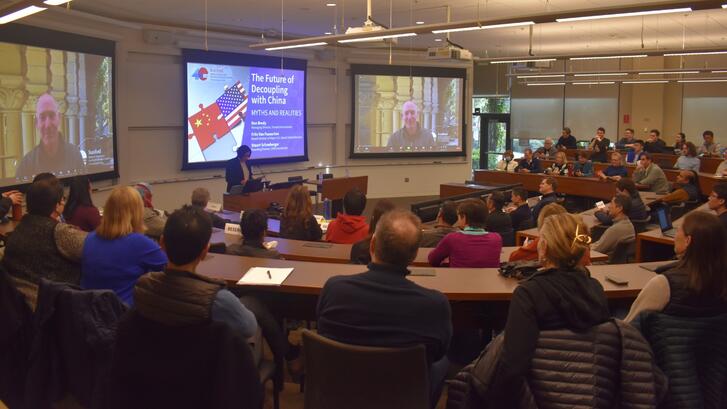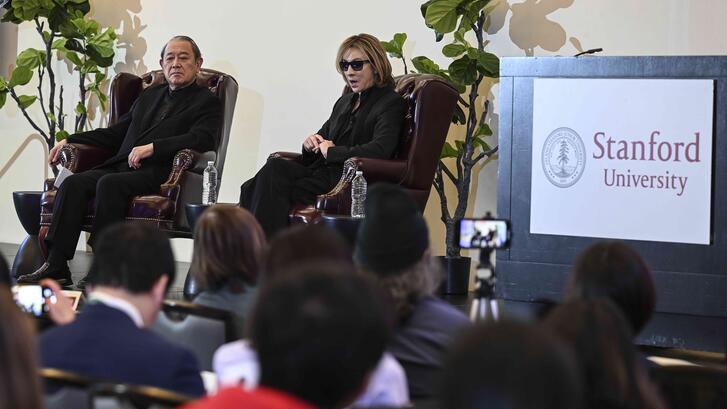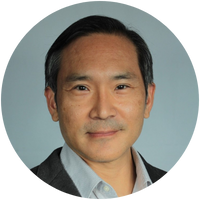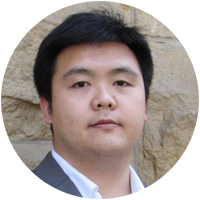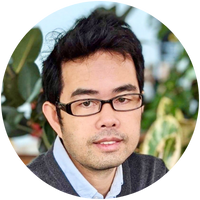The third installment in a special event series on the occasion of Shorenstein APARC's 40th Anniversary, "Asia in 2030, APARC@40"
Hosted by APARC's Asia Health Policy Program
The Asia Health Policy Program (AHPP) aims to help empower health systems and policymakers in the Asia-Pacific region to improve their proactive, evidence-based responses to population health problems. This webinar brings together former postdoctoral fellows and visiting scholars from the program to explore their contributions to guiding healthcare providers and policy audiences toward a better understanding of health and demographic issues and the delivery of disease management and other health services. In celebrating the 40th anniversary of the Shorenstein Asia-Pacific Research Center, these scholars and practitioners will also share their reflections on how the center and the program have shaped their research and professional careers.
Speakers
Brian Chen, JD, PhD. Dr. Chen is an associate professor at the Arnold School of Public Health, University of South Carolina. He brings with him a global perspective on health and well-being, having lived and worked in health-related industries in Taiwan, Japan, and France. Using the tools of economic analysis, his research focuses on the organization and delivery of health care as well as the social determinants of health in Asia and the United States. A particular focus of his work is on the impact of laws and economic incentives on healthcare treatment decisions. His doctoral dissertation, published in the Journal of Public Economics, explored how Taiwan’s separating policy that mandated the separation of diagnosing from drug dispending affected physician prescribing behavior, and whether such changes had an impact on observable health outcomes.
Dr. Chen continues to work on economics- and health law-related research, investigating the impact of opioid regulations on prescribing behavior and subsequent health consequences. His new project aims to understand how the introduction of a novel class of therapeutics may have affected the undertreatment of osteoporosis, an important question in aging societies in Asia, the United States, and around the world.
Dr. Chen received his BA summa cum laude in Linguistics with Computer Science from Harvard College (1992), JD from Stanford Law School (1997), and his PhD in Business Administration from the University of California at Berkeley (2009). He was a postdoctoral fellow at the Walter H. Shorenstein Asia-Pacific Research Center at Stanford from 2009 to 2011.
Wasin Laohavinij, MD. Wasin Laohavinij is a medical doctor with an interest in quality improvement and program evaluation. He was a visiting scholar at the Asia Health Policy Program, Walter H. Shorenstein Asia Pacific Research Center, Stanford University in the United States in the Autumn of 2019.
Currently, He is a preventive medicine physician concentrating on non-communicable diseases and serves as a Chief of Data Management and Cost Evaluating Center, at King Chulalongkorn Memorial Hospital, Thailand. His work focuses on reducing healthcare costs while maintaining the quality-of-care patients receive. Furthermore, he is also interested in evaluating the efficacy and cost-effectiveness of health interventions.
Phyu Phyu Thin Zaw, MBBS, MPP, PhD. Phyu Phyu Thin Zaw, who is a Burmese national, is a medical doctor, epidemiologist, and health systems researcher currently working as a Lecturer in the School of Public Health at the Li Ka Shing Faculty of Medicine, University of Hong Kong. She is also a member of the Steering Committee of the Science in Exile initiative, which brings together at-risk, displaced, and refugee scientists along with like-minded organizations who work together to strengthen systems that support, protect and integrate such affected scientists.
Phyu Phyu’s research interests are equity, health and education policies, Southeast Asia health systems and policies, sexual and reproductive health, gender equality, poverty eradication, and human rights issues. Thin Zaw is also a public health and policy consultant giving technical advice to think tanks and non-governmental organizations.
Margaret Triyana, PhD. Dr Triyana is a Senior Economist at the World Bank's Office of the Chief Economist, South Asia Region. Her main research area examines human capital formation over the life cycle, with an emphasis on how policies and environmental factors affect different dimensions of human capital in low and middle-income countries. She also examines the distributional impacts of both environmental risks and policies.
Siyan Yi, MD, MHSc, PhD. Dr. Yi is a medical doctor and an infectious disease epidemiologist by training. He received his PhD from the School of International Health of the University of Tokyo in Japan in 2010. He was a postdoctoral fellow at the Asia Health Policy Program, Walter H. Shorenstein Asia Pacific Research Center, Stanford University from 2011-2012. He is an Assistant Professor and Director of the Integrated Research Program at Saw Swee Hock School of Public Health, National University of Singapore. He also serves as Director of KHANA Center for Population Health Research in Cambodia and Adjunct Associate Professor at Touro University California, the United States. His implementation research program focuses on developing and evaluating community-based innovative interventions for improving access to prevention, treatment, and care services for HIV/AIDS, tuberculosis, sexual and reproductive health, and maternal and child health among vulnerable and marginalized populations in Southeast Asia.


